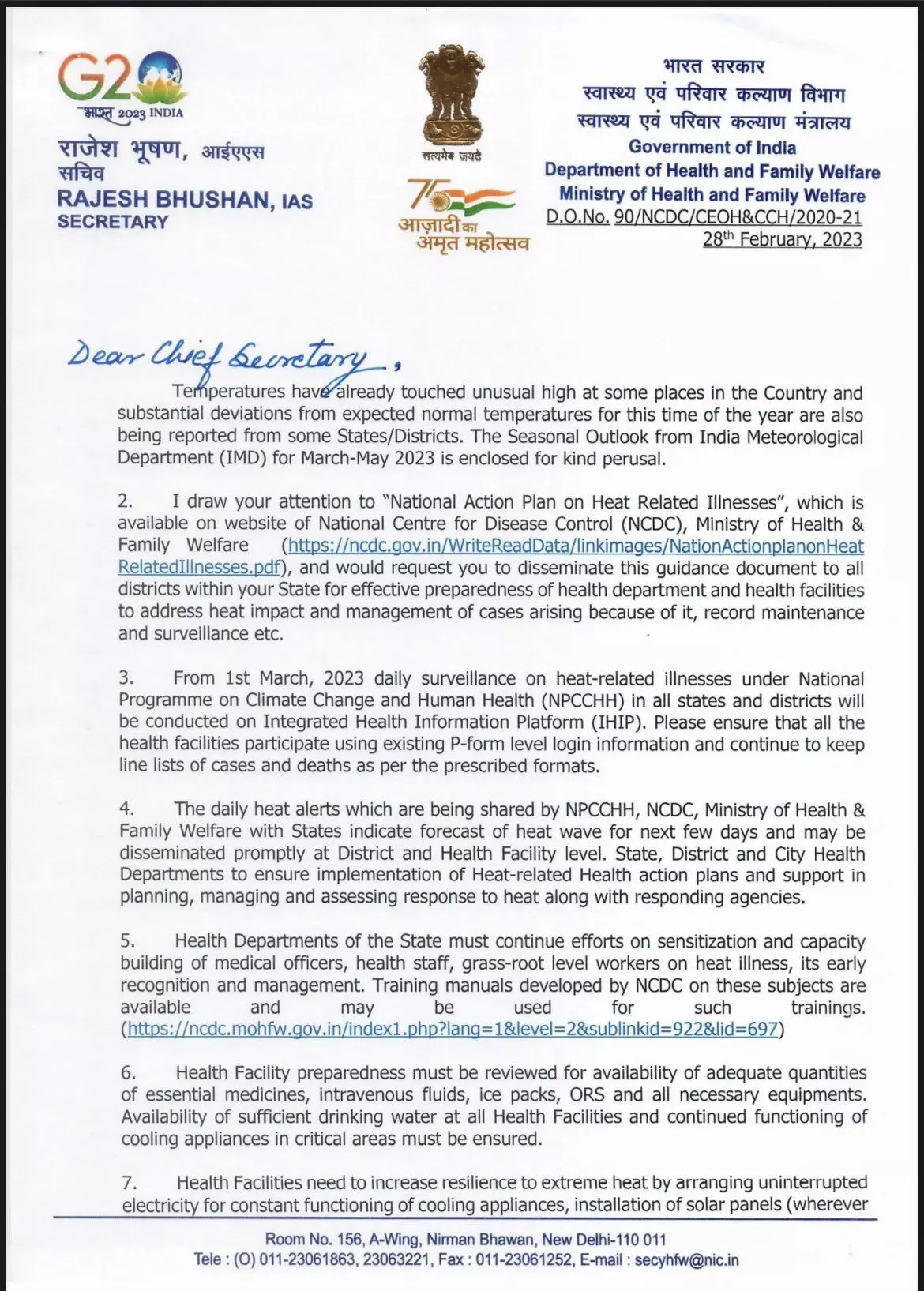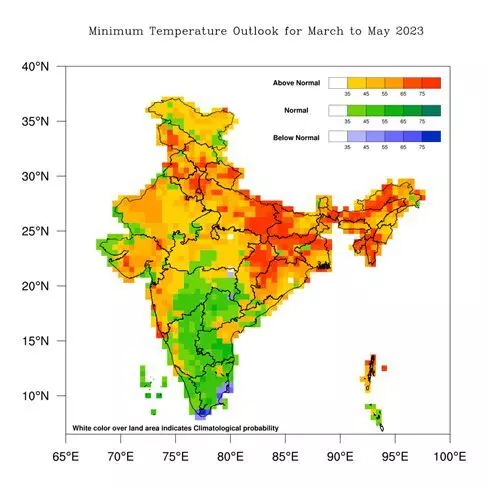In the wake of prematurely high temperatures pervading in the country, the Union Ministry of Health and Family Welfare yesterday, on February 28, wrote to the states and the Union Territories to conduct daily surveillance on the cases of heat related illnesses.
“Temperatures have already touched unusual high at some places in the Country and substantial deviations from expected normal temperatures for this time of the year are also being reported from some States/Districts,” the letter signed by Rajesh Bhushan, the Union Health Secretary mentioned.
The letter further stated that health departments of the state governments must continue efforts on sensitisation and capacity building of medical officers, health staff, grass-root level workers on heat illness, its early recognition and management.
Also Read: Same story, different year: High February temperatures haunt wheat farmers for 2nd consecutive year
The ministry also stated that the preparedness of the health health facilities must be reviewed for availability of adequate quantities of essential medicines, intravenous fluids, ice packs, ORS [oral rehydration syrup] and all necessary equipment.

“Availability of sufficient drinking water at all Health Facilities and continued functioning of cooling appliances in critical areas must be ensured,” it added.
Unusually high temperatures prevail
It is important to mention that the records for the highest temperatures for this time of the year are being broken even as the peak of the summer is yet to arrive. For instance, the national capital on February 20 registered a maximum temperature of 33.6 degrees Celsius which as per the India Meteorological Department (IMD) was the third hottest day ever recorded in February in the last 55 years.
Also Read: Uttar Pradesh: Mustard farmers feel the sting as early heatwaves likely to affect crop yield

Also, the country at large has reported the hottest February this year since 1901 with average maximum temperature touching 29.54 degrees Celsius, the IMD stated yesterday, on February 28.
Today, March 1, as per the IMD weather calendar is the first day of the Indian summers which officially concludes on May 31. In a press release dated February 28, the IMD mentioned that during the upcoming hot weather season, above normal maximum temperatures are likely over most parts of northeast India, east and central India and some parts of northwest India.
“Monthly maximum temperatures for March 2023 are likely to be above normal over most parts of the country except peninsular India where normal to below normal maximum temperatures are likely. Above normal monthly minimum temperatures are most likely during March, 2023 over most parts of India except south peninsular India where normal to below normal minimum temperatures are likely,” the IMD noted.
Talking to Gaon Connection about the factors responsible for the unusually high temperatures this year, Mahesh Palawat, vice president of meteorology and climate change at private weather forecast website Skymet Weather, informed that the formation of an anti-cylone in the Arabian Sea is the primary reason behind the arrival of hot winds across the northern plains in India.
“This anti-cyclone which is hovering around the north-eastern Arabian Sea is sending hot winds from Sindh and Balochistan regions of Pakistan towards India’s northern plains. As a result of the flow of these winds, the cooler winds from the Himalayas are also unable to provide any respite which has led to such hot weather in states like Haryana, Delhi, and Uttar Pradesh,” Palawat told Gaon Connection.
Talking about the changing weather patterns in the light of an adversely changing climate, Palawat added that the agriculture sector is set to face the most serious ramifications. “Both the farmers and the government need to think of resilient measures to combat climate change. This year too, farmers who had sown wheat a bit earlier are in a better position than the ones who sowed it late. Farmers need to readjust their agricultural calendars and timing of cultivation. The government should come up with heat resistant crops,” he said.
Last year, as a consequence of the devastating heatwaves adversely affecting the production of paddy in the country, the Union government had enforced a ban on the export of rice.


















